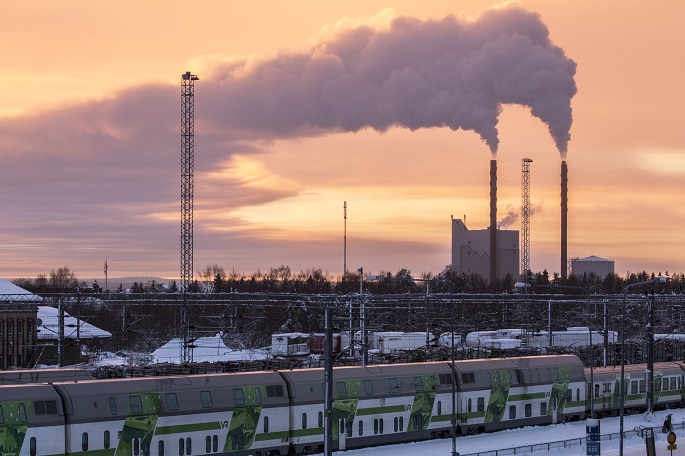Climate conference resumes in Bonn today
Emissions must go on wane in 5 years: Tiilikainen
Published : 06 Nov 2017, 00:07
Updated : 06 Nov 2017, 08:30
The UN climate change negotiations will resume in Bonn, Germany on Monday to discuss the details of the Paris Agreement and concrete rules to monitor emissions.
The conference aimed to prepare a draft proposal for further negotiations will continue till November 17, said an official press release.
Minister of the Environment, Energy and Housing Kimmo Tiilikainen will lead the Finnish delegation to the meeting from November 13 to 17.
In addition to reporting and monitoring, a process is needed to assess the sufficiency of climate actions every five years and to further boost their implementation. The current climate actions are not enough to limit the rise in global average temperature to below two degrees, said Tiilikainen.
He stressed the EU’s climate leadership, now that the US has declared its withdrawal from the agreement. “The global emissions must be on the decrease within the next five years. This can only be achieved if the worldwide commitment to climate work stays strong. What I expect from Bonn is proof of such commitment, including concrete steps in drafting the rules to implement the Paris Agreement.”
“It has been good to see that the US withdrawal has led to other countries closing their ranks, while various other stakeholders such as cities and companies have become more active. Action is needed everywhere, but sustainable urban development is in a key position: the battle against climate change is won or lost in cities. In Finland the emissions, especially from district heating and transport, must be reduced soon,” remarked the minister.
The presidency of the conference is Fiji. This is the first time when the negotiations are led by a small island state. The island states of the Pacific have often been driving more ambitious policies as their very existence is under threat already within the next few decades, if climate warming and rise in the sea level can’t be curbed.
What Fiji’s presidency especially means is even stronger support for the 1.5 degree threshold and more attention to adaptation and damages and losses caused by climate change.
“We must ensure that the political will and spirit of Paris continues to show, and the firewall between the countries does not reappear. The details of the agreement should be finalised by the end of the year, so there is no time to be lost in Bonn – and Fiji really feels that,” said Outi Honkatukia, chief negotiator for climate change at the environment ministry. Honkatukia heads the Finnish delegation during the first week of the meeting.
The role of indigenous peoples is also among the priorities for Fiji. The role and functions of the International Indigenous Peoples’ Forum on Climate Change set up by the Paris Agreement are on the agenda for the first time in Bonn. The aim is to take account of the traditional knowledge of indigenous peoples and promote their involvement in international climate negotiations.
Finland’s Sámi Parliament has been very active in climate negotiations and it also has a representative in the Finnish delegation.
The Paris Agreement entered into force a year ago and by now it has been ratified by 169 parties.
In Finland, good progress has been made in the national implementation. The National Energy and Climate Strategy was adopted in November 2016 and the medium-term climate change policy plan to2030 under the Climate Change Act was completed this autumn. Finland has also set as the target to be carbon neutral by 2045.
Besides the Conference of the Parties (COP 23) to the UN Convention on Climate Change, there will be numerous side events in Bonn. On the opening day on 6 November, the Arctic Council, where Finland currently holds the chairmanship, will host an event with the theme “the global implications of a rapidly-changing Arctic.”
Various local stakeholders also have a strong presence in Bonn. The main event is the Climate Summit of Local and Regional Leaders on 12 November, which brings more than a thousand participants and 320 political leaders to Bonn.


